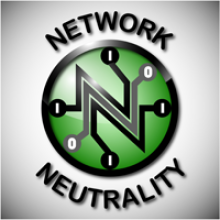A Roadmap for the FCC To Ensure Local Authority to Build Networks - Community Broadband Podcast #84

When the DC Circuit Court handed down a decision ruling against the FCC's Open Internet (network neutrality) rules, it also clarified that the FCC has the power to overrule state laws that limit local authority to build community networks. Harold Feld, Senior Vice President for Public Knowledge, joins us for Community Broadband Bits Episode #84 to explain the decision.
Harold exlains what Section 706 authority is and how all the DC Circuit judges on the case felt that the FCC, at a minimum, has the authority to strike down laws that delay or prohibit the expansion of broadband infrastrcturue.
We then discuss how the FCC can go about striking down such laws to reestablish local authority - a community in a state like North Carolina could file a petition with the FCC for action or the FCC could decide to take action itself. Either way, it will have to build a record that laws revoking local authority to build networks are harmful to expanding this essential infrastructure.
Finally, some of this power filters down to state public utility commissions, but just how much is unclear at present.
Read the transcript from our discussion here.
We want your feedback and suggestions for the show - please e-mail us or leave a comment below. Also, feel free to suggest other guests, topics, or questions you want us to address.
This show is 15 minutes long and can be played below on this page or via iTunes or via the tool of your choice using this feed.
Listen to previous episodes here. You can can download this Mp3 file directly from here.
Find more episodes in our podcast index.
Thanks to Fit and the Conniptions for the music, licensed using Creative Commons.


